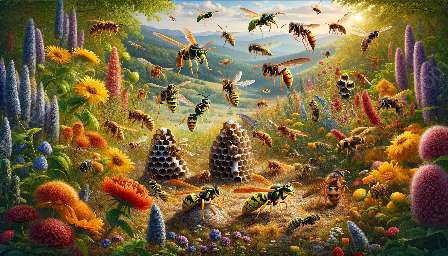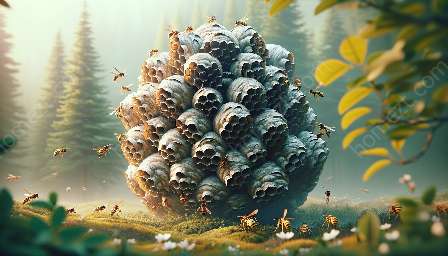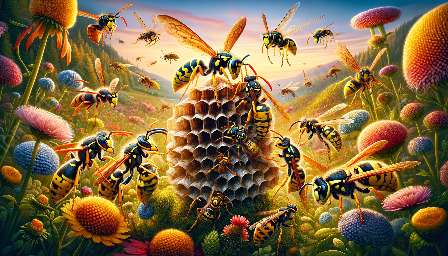Dealing with a wasp infestation can be a daunting task, as these insects can be aggressive and pose a threat to those around them. It's important to carefully consider your options when it comes to wasp extermination methods and pest control to ensure the safety of yourself and others. In this comprehensive guide, we'll explore various techniques and strategies for dealing with wasps, including natural and professional methods.
Natural Wasp Extermination Methods
For those who prefer environmentally-friendly options, natural wasp extermination methods can be effective in controlling and eliminating wasp populations without the use of harmful chemicals. Some popular natural methods include:
- Wasp Traps: Setting up traps using sweet baits can help reduce the number of wasps in the area. Traps should be strategically placed away from high-traffic areas to avoid accidental contact with humans or pets.
- Pesticide-Free Sprays: Various essential oils, such as peppermint or clove oil, can act as natural deterrents for wasps. Mix these oils with water and spray the solution around entrances or areas where wasps are nesting to discourage their presence.
- Sealing Entry Points: Preventing wasps from entering your property by sealing any gaps or cracks can help in minimizing their presence.
Professional Pest Control Services
When facing a severe wasp infestation or when natural methods are not effective, seeking the assistance of professional pest control services may be necessary. Pest control experts are equipped with the knowledge and tools to safely and effectively exterminate wasps from your property. Some common strategies used by professionals include:
- Chemical Treatments: Pest control professionals have access to commercial-grade insecticides that are specifically formulated to target and eliminate wasp populations. They are trained to apply these treatments in a safe and controlled manner to reduce potential harm to the environment and non-target species.
- Wasp Nest Removal: Professional pest control companies can safely locate and remove wasp nests to prevent further infestations and ensure the safety of your property.
- Preventive Measures: In addition to extermination, pest control experts can provide guidance on preventive measures to reduce the likelihood of future wasp infestations.
Integrated Pest Management
Integrated Pest Management (IPM) is an environmentally-sensitive approach to pest management that combines various methods and techniques to address pest problems, including wasp infestations. By integrating natural, mechanical, and chemical strategies, IPM aims to minimize the impact on human health and the environment while effectively controlling pests. This approach emphasizes long-term prevention and management rather than just relying on extermination.
Key Considerations for Wasp Extermination
Before proceeding with any wasp extermination method, it's important to consider the following key factors:
- Safety: Prioritize the safety of yourself, family members, pets, and other non-target species when selecting and implementing wasp extermination methods. Be cautious and follow all safety guidelines and instructions.
- Legal Regulations: Familiarize yourself with local laws and regulations regarding the use of certain pest control products and methods. Some areas may have restrictions on the use of specific chemical treatments or require professional assistance for certain pest control activities.
- Environmental Impact: Choose methods that have minimal impact on the environment and non-target species. Consider using natural and eco-friendly options whenever possible.
Conclusion
Dealing with a wasp infestation requires careful consideration and effective action to ensure the safety and well-being of everyone involved. By exploring natural and professional wasp extermination methods, as well as pest control strategies such as Integrated Pest Management, you can effectively manage and eliminate wasp populations while minimizing the impact on the environment and non-target species. Remember to prioritize safety, comply with legal regulations, and choose methods that are environmentally-friendly whenever possible.





















